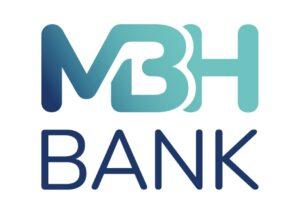MBH Bank: Almost half of the agricultural enterprises rely on EU grant funds
Hungarian agriculture and the food industry are characterized by an optimistic mood with the launch of the European Union’s Rural Development Program, according to MBH Bank’s public opinion survey examining the situation of domestic agricultural enterprises. 43 percent of the farmers, and an even larger part of the credit institution’s clients, 47 percent, plan to participate in the soon-to-be-opened tenders in the next six months. A third of the companies also planned to replace old machines, vehicles, and equipment, and there are a similar proportion of those who would look for new, if possible, cheaper suppliers. Agricultural enterprises are not preparing for layoffs or wage cuts, rather they trust in growth.

According to MBH Bank’s representative survey of almost 500 companies across the country, the most important plans include taking out state-subsidized loans, energy efficiency, and investments that increase automation and digitalization. These are planned by 24, 23 and 16 percent of the respondents in the near future. However, the development of a new product or service is included in the plans in a smaller proportion, 14 percent of the respondents are preparing for this. – We expect that, after the difficulties of the past few years, the credit portfolio of the agricultural and food industry can already expand substantially in 2025. The long-awaited rural development investment tenders for the 2023-2027 period of the Common Agricultural Policy will soon be opened, with a total of HUF 1,500 billion in support coming to the sector. A serious investment cycle may begin. Those who can think rationally in their cost management and reduce their own costs, who have stable supplier-customer relationships, and who involve their bank already at the planning stage will be in a good position to use the tenders. – said Dávid Hollósi, managing director of the credit institution’s Agricultural and Food Business. He added that MBH Bank still sees a serious opportunity in the development of Hungarian agriculture. – At the same time, in order to develop, you have to move with the trends, you have to move towards quality in the production level.
The increase in prices and the economic environment are among the main challenges
The research also provided important data on the daily challenges of agricultural companies. For those surveyed, the main difficulties are primarily related to cost increases: for 87 percent, raw material prices are a problem, for 82 percent, the rise in energy prices, followed by the economic environment with 76 percent. At least three-quarters of all companies identified these as challenges, and these three were also named as the most important difficulties by agricultural enterprises with a ratio of 25, 18, and 20 percent, respectively. The lack of labor is also a significant challenge, which is a problem for fewer companies, but for those that do, a high proportion of respondents indicated this as the main difficulty. In addition to all this, the agricultural companies continuously took steps to offset the effects of inflation. 48 percent mentioned the reduction of operating costs and 34 percent the increase of production efficiency. The latter aspiration appeared in a particularly high proportion of MBH Bank’s clientele, typical of 42 percent of them. About a quarter of agricultural companies (26%) tried to involve new markets and business areas, and almost every second company tried to sell to a wider customer base – unchanged (21%) or at higher prices (21%). Every fifth company provided employees with a wage increase to offset the effects of inflation.
The overdraft and the Agrár Széchenyi Card are the most popular products
The research also examined which loan products are currently the most popular among agricultural companies. Based on the answers, the overdraft was at the top with 23 percent, followed by the Agrár Széchenyi Card with 21 percent. At the same time, MBH Bank’s customer base has more Agrár Széchenyi Cards (35%) than those with overdrafts (23%). Most of the market participants use land purchase and investment loans as well. Examining the banking channel usage habits of businesses revealed that most (73%) prefer online banking, while more than half of businesses (53%) prefer branch service. Among MBH Bank’s agricultural clients, these are also the most popular forms of administration.
MBH Bank is one of the best-known players in the agricultural market
According to the survey, MBH Bank is one of the most well-known players in the agricultural market: its spontaneous brand recognition among the respondents reached 77 percent. MBH Bank also has a dominant role in terms of customer base: 54 percent said that the bank is their customer, and MBH Bank is the main bank for 45 percent of the surveyed agricultural enterprises. – At MBH Bank, our mission has long been to finance small producers, but in addition, we are placing more and more emphasis on serving the entire sector, and we are placing an even greater focus on serving larger customers. It is a sector of strategic importance, for which efficient financing is key. For this, there is an increasing need for even higher-level financial solutions and the widest possible range of services. Our goal is to facilitate the development that the sector needs to be commercially successful for businesses. – said József Sánta, director responsible for small, medium and large enterprises of MBH Bank’s Agricultural and Food Business.
Related news
KSH: in the fourth quarter of last year, investment performance was 1.3 percent lower than a year earlier
🎧 Hallgasd a cikket: Lejátszás Szünet Folytatás Leállítás Nyelv: Auto…
Read more >NAK President: more than 120 thousand people signed the agricultural petition in one month
🎧 Hallgasd a cikket: Lejátszás Szünet Folytatás Leállítás Nyelv: Auto…
Read more >Milk and dairy product prices decreased at the beginning of the year in Hungary
🎧 Hallgasd a cikket: Lejátszás Szünet Folytatás Leállítás Nyelv: Auto…
Read more >Related news
Sephora is coming to Belgium this year
🎧 Hallgasd a cikket: Lejátszás Szünet Folytatás Leállítás Nyelv: Auto…
Read more >MOHU: 5,200 return points are in operation, but 47 larger settlements still do not have RE points – public “enema” machines may be introduced
🎧 Hallgasd a cikket: Lejátszás Szünet Folytatás Leállítás Nyelv: Auto…
Read more >








